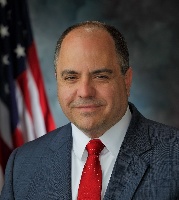Cuba Juvenile Law Lawyer, New York
Sponsored Law Firm
-
 x
x

Click For More Info:
-
Law Office of Mark S. Guralnick
55 Madison Avenue 4th Floor Morristown, NJ 07960» view mapCriminal Defense Law Dedicated. Fearless. Successful.
Mark S. Guralnick and his legal team have helped clients throughout the USA and across the world by applying unparalleled dedication and hard work to each case.
800-399-8371
Not enough matches for Cuba Juvenile Law lawyer.
Below are all Cuba Criminal lawyers.
Raymond Paul Sciarrino
✓ VERIFIEDSciarrino & Sciarrino, P.C. is a criminal law firm serving Rochester and the surrounding areas of Livingston County and Wyoming County. For more than ... (more)
Anthony M. Bruce
✓ VERIFIEDMr. Bruce’s legal career has focused on criminal litigation. For 37 years, Mr. Bruce worked as Assistant United States Attorney in the United State... (more)
 Mark Guralnick Morristown, NJ
Mark Guralnick Morristown, NJ AboutLaw Office of Mark S. Guralnick
AboutLaw Office of Mark S. Guralnick Practice AreasExpertise
Practice AreasExpertise


